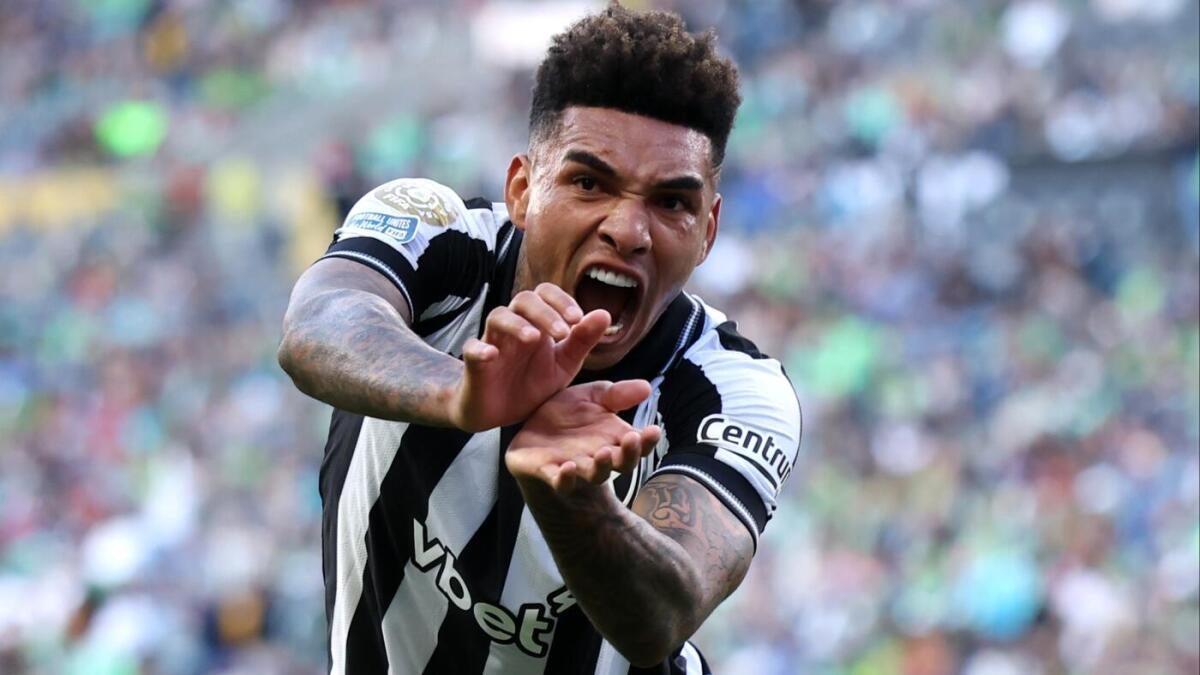The Unfolding Drama in Pasadena
The 2025 FIFA Club World Cup has already provided a thrilling twist, with Brazilian club Botafogo stunning Paris Saint-Germain (PSG) 1-0 in a Group B encounter at the Rose Bowl in Pasadena, California. This unexpected victory has not only reshaped the group dynamics but also sparked conversations about the evolving nature of global club football. The match was more than just a defeat for PSG; it was a jolt to their winning streak and a humbling experience for a team known for its dominance.
The Numbers Game: Possession vs. Precision
The statistics from the match tell a tale of Parisian control that didn’t translate into goals. PSG held 75% of the ball, completed nearly 500 more passes than Botafogo, and had 16 shots to Botafogo’s four. However, these numbers didn’t convert into a win. PSG managed only two shots on target, highlighting a critical flaw in their game: converting possession into goals. This inefficiency in front of goal was their undoing. The loss snapped PSG’s impressive streak of 19 consecutive games with a goal, showing that even the most formidable attacking teams can have off days.
Igor Jesus: The Hero of the Hour
The match’s pivotal moment came from Brazilian international Igor Jesus, who scored the game’s only goal. Released by Marlon Freitas, Jesus deftly navigated past PSG’s central defenders to slot the ball home, leaving the Parisian goalkeeper with no chance. This goal was more than just an individual brilliance; it was the result of Botafogo’s tactical discipline and resolute defensive play. Jesus has quickly become the linchpin of Botafogo’s success, guiding them to this historic victory.
Botafogo’s Ascent: A South American Triumph
Botafogo’s win is a monumental moment for South American football, proving the competitiveness of CONMEBOL Copa Libertadores champions against their European rivals. Having recently clinched their first Copa Libertadores title in 123 years, Botafogo arrived at the Club World Cup with confidence. This victory solidifies their status as a global force. They now top Group B with three points, ahead of both PSG and Atlético Madrid, setting the stage for an intense final group stage match.
The New Landscape of Group B
The upset has dramatically altered the dynamics of Group B. PSG, once considered favorites, now face an uphill battle, needing a positive result in their final group stage match to avoid elimination. Atlético Madrid, who previously lost 4-0 to PSG, see this result as an opportunity to advance. The group has become a “Pool of Death,” with all four teams still in contention for the knockout stages, making the remaining matches must-win scenarios.
Shifting Power Dynamics in Global Football
The implications of Botafogo’s win extend beyond the Club World Cup. It challenges the perceived dominance of European football and hints at a potential shift in the global football hierarchy. While PSG’s 4-0 victory over Atlético Madrid showcased their attacking firepower, the defeat to Botafogo underscores the importance of tactical flexibility, defensive organization, and clinical finishing—qualities not exclusive to European teams.
The tournament itself is receiving substantial investment, with FIFA reportedly spending over $50 million on marketing to promote the expanded 32-team format in the United States. This investment aims to elevate the Club World Cup’s profile and attract a broader audience, and the early stages of the tournament have certainly delivered on the promise of excitement and unpredictability.
PSG’s Wake-Up Call
For PSG, the loss is a stark wake-up call. Despite their star-studded squad and recent Champions League success, they were outplayed by a team that demonstrated greater tactical cohesion and determination. The inability to convert possession into goals exposed a critical weakness in their attacking approach. Luis Enrique’s team will need to address these shortcomings quickly if they are to salvage their Club World Cup campaign and maintain their status as one of the world’s elite clubs.
A Moment of South American Pride
Botafogo’s victory is more than just a football result; it’s a moment of immense pride for Brazilian and South American football. It demonstrates that the gap between the continents is narrowing and that teams from outside Europe are capable of challenging for the highest honors in the game. The image of Igor Jesus celebrating his winning goal will undoubtedly resonate with fans across South America, serving as a symbol of hope and inspiration. This upset isn’t just a shock result; it’s a statement—the world of club football is becoming increasingly competitive, and the traditional power structures are being challenged.
Conclusion: A New Dawn in Global Football
The 2025 FIFA Club World Cup has already proven to be a tournament of surprises, with Botafogo’s victory over PSG serving as a wake-up call for European dominance. This upset highlights the growing competitiveness of South American teams and the importance of tactical discipline, defensive solidity, and clinical finishing. As the tournament progresses, fans can expect more thrilling moments and unexpected outcomes, further cementing the Club World Cup’s status as a must-watch event in the global football calendar. The stage is set for an exhilarating conclusion, with every match promising to be a battle of skill, strategy, and determination.

